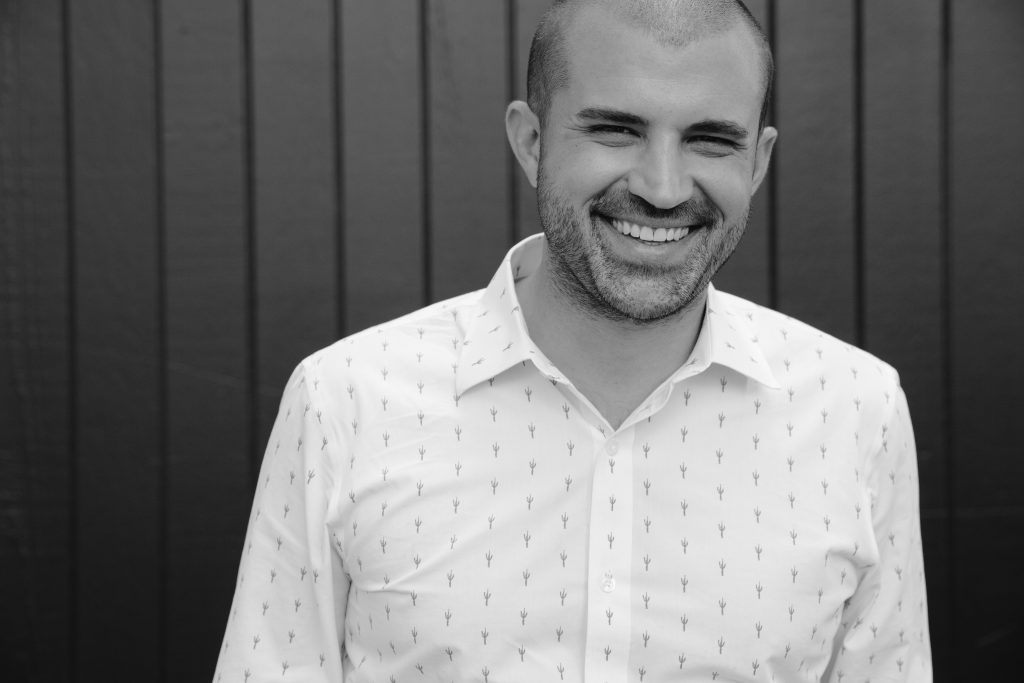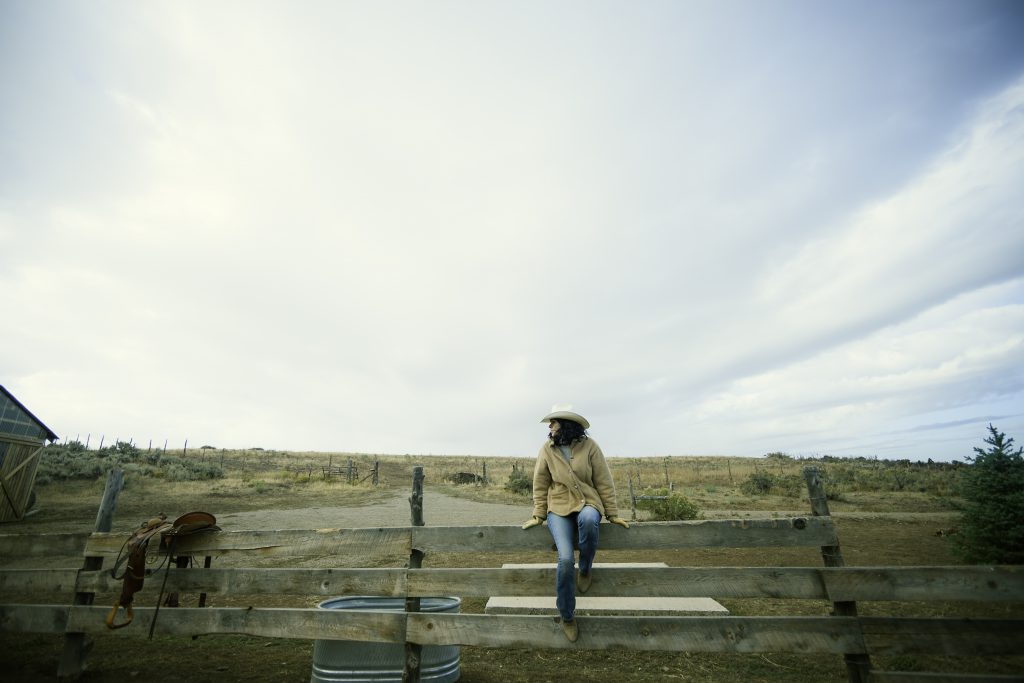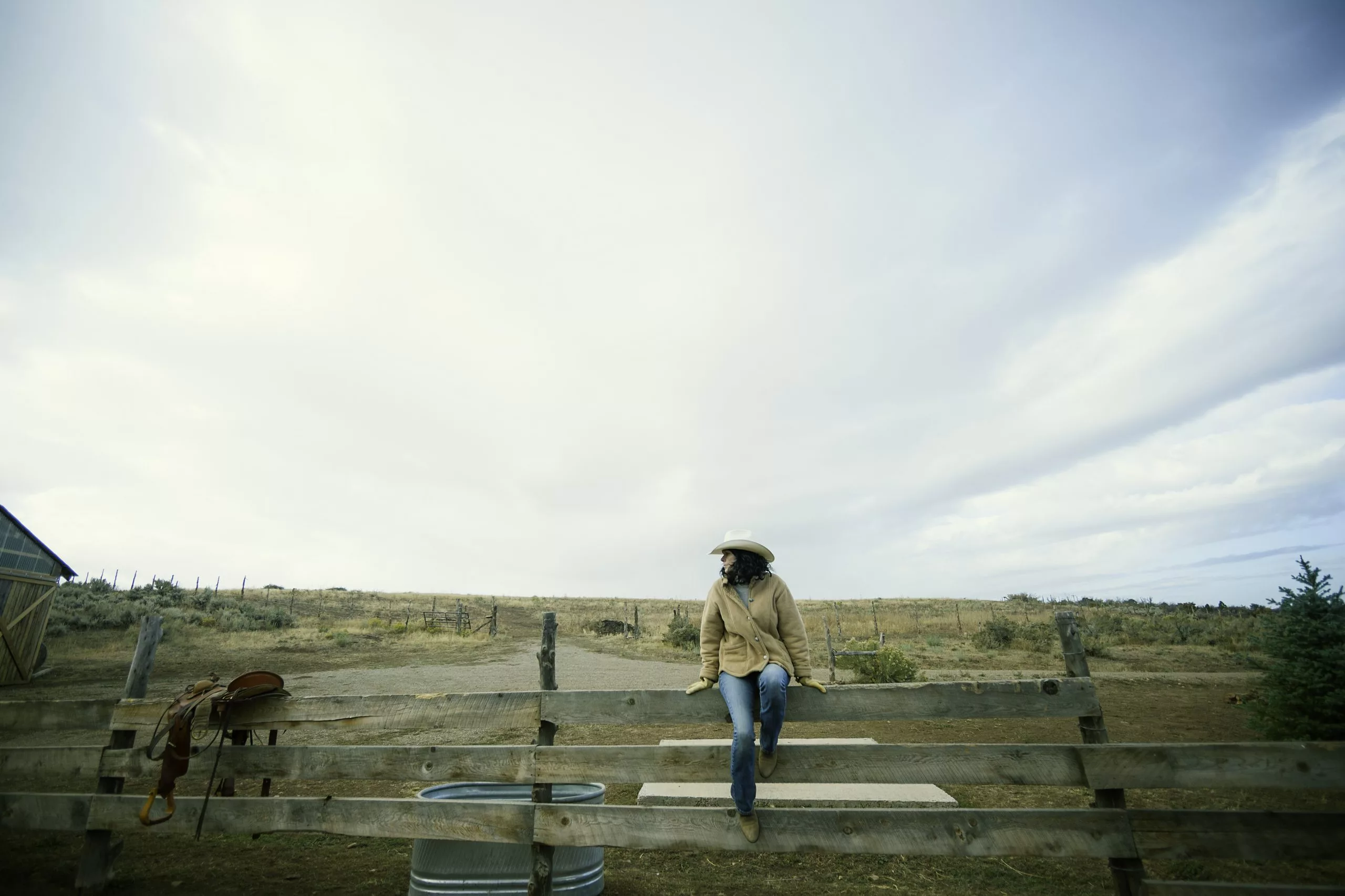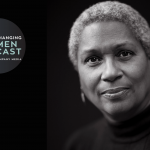What do a pizza restaurant and a leadership development center have in common? Besides the fact that they’re both Colorado businesses, these companies are also members of Good Business Colorado — a nonprofit, nonpartisan business-advocacy organization, serving as a voice for business owners who believe that policies that build a strong economy, thriving communities, and a sustainable environment are good for business, good for employees, and good for the state.
We caught up with both of these companies’ co-founders, who are standing up for what they believe in, challenging the status quo, and fighting for policy change to benefit their local community, environment, and economy. Listen as they share their process, struggles, and advice for other businesses looking to do the same across the country.
Sexy Pizza

Sexy Pizza offers a delicious meal and a flirty name, but when it comes to business advocacy, co-founder Kayvan Khalatbari has his game face on. The company’s mission is to build a profitable business that operates in a manner “that is empowering for our employees, friendly to our environment, civically engaged, and a positive force within our community,” Khalatbari says—and Sexy Pizza’s track record walks the talk, no matter how you slice it.

Kayvan Khalatbari, Co-Founder of Sexy Pizza
Policy advocate: Kayvan Khalatbari, Co-Founder of Sexy Pizza
Founded: 2008
Product/service provided: Pizza and other Italian fare
Advocating for: drug policy reform, decriminalization of homelessness
What inspired you to use your business for advocacy?
All 13 of my businesses were born out of my participation in drug and criminal justice policy reform. That conversation opened doors to the other inequities in our society, and my partners and I wanted to make certain we were part of these conversations as a business — not just individuals. Too often businesses get associated with restrictive social policies that suppress workers’ rights, negatively impact the environment, and do damage to evolving communities. We knew that most businesses in Denver, Colorado, aren’t members of the Chamber of Commerce and other entities that support these profit-driven policies, so we wanted to 1.) be an example of something better that other businesses could aspire to, and 2.) help mobilize other businesses to work together for a more fair and just Denver for all stakeholders.
How you’ve impacted policy:
Our founders were the folks who led the cannabis decriminalization efforts in Colorado 13 years ago. Since then we have supported numerous policy organizations centered in drug policy reform and, for the past decade, have earmarked pizzas that when sold deliver a $1 for each pizza to selective non-profits doing this work: Harm Reduction Action Center, Students for Sensible Drug Policy, Law Enforcement Against Prohibition, Sensible Colorado, S.A.F.E.R. and more. This has provided tens of thousands of dollars to these organizations each year. We also provide free pizza to nonprofits and activist/advocate endeavors for feeding their supporters, probably giving away more than any other pizzeria in Denver. A notable activist recently stated, “There isn’t an activist working on any socially progressive cause in Denver that hasn’t been offered free Sexy Pizza at some point.”
We have been entrenched in the conversations about homelessness in Denver as one of the primary business supporters of efforts to decriminalize homelessness in Denver and the city’s first tiny home village. Our founder took a video of cops confiscating blankets from a homeless veteran on a night when temperatures were below zero, which went viral. That led to a ceasing of that practice by the city of Denver and opened the door to the current tiny home village, two more in the works, and a ballot initiative to decriminalize homelessness, which will be voted on in May in Denver. Sexy has fed these supporters and worked within the leadership of the Alternative Solutions Advocacy Project (ASAP) and Colorado Village Collaborative, which lead these efforts. We also were the first participants in a pilot program that installed lockers outside of our pizzeria in Capitol Hill for people experiencing homelessness, all while the city removed their lockers from use. Because of its success in its first year, this pilot program has since received a $15,000 grant from RedLine and will expand to other building shortly.
What were some of the biggest challenges you faced, and how did you overcome them?
The biggest challenges we all face when trying to find progress is the comfort people feel within the status quo. The best way to push on that status quo is to coalesce the most diverse collection of stakeholders possible and make people feel uncomfortable through awareness and education. An example of this is the ASAP group above, which was assembled because the city was not listening to the people pushing back on our failed policies around homelessness, because it was primarily coming from people living on the streets. ASAP brought together those people living on the streets with faith organizations, businesses, service providers, nonprofits, concerned residents and folks within the city to push back collectively for more fair policies, and we’re gaining the traction I mention above.
What are continual challenges, and how do you stay motivated?
Perhaps the largest challenge is keeping momentum after you get a win. As success seeps in and coalitions grow they can feel empowered, but also start to believe in different paths forward. It’s incredibly difficult to keep such a diverse set of stakeholders on the same page as progress builds, so it’s important to have frequent communication regarding expectations with all stakeholders, allow people to work in their own lanes as much as possible, and make sure everyone understands that it’s okay if we don’t agree on everything along the way, as long as we still believe in the end goal we all started out to achieve. Nothing worth achieving is going to be easy. It will often be frustrating and there will be days where you get beat down and feel helpless, but if you go into those efforts knowing that, and are conscious about self-care along the way, anything is possible.
What would you say to a business leader who is discouraged by policy today — to inspire them to step up and take action?
Nothing will happen if you don’t start the conversation, so step up and see where it goes, even if you’re a little unsure about what that entails. Especially on a local and state level, policy change is very possible with even one person, but if you can build a coalition around people that believe the same as you, the message becomes that much more powerful, especially when the stakeholders are diverse. The ability to reach into a wide spectrum of communities and communicate the group’s vision with them becomes much easier with that broad representation.
Perhaps most importantly, know that policy doesn’t change overnight. Sometimes it takes years. Sometimes it takes failing first. Sometimes the end result doesn’t look like what you had expected when you set off on the journey, but if you keep pushing forward you will see progress. If you don’t push at all, others will continue to in the opposite direction. Civic engagement should be treated like anything else we practice in an effort to achieve a healthy and happy life — exercising, eating healthy, etc. — it behooves us to incorporate it into our daily lives. If we do that as a community, we will see positive change in the policies we want to see changed.
Vista Caballo

Lisa Arie, co-founder of Vista Caballo
Nature and neuroscience collide at Vista Caballo, an international leadership development center located on a private 160-acre nature preserve, and as co-founder Lisa Arie says, “It’s designed for a new breed of leaders.” Along with her co-founder husband, Arie works with socially responsible organizations and people to “challenge what they think they know so they can discover and embrace what they don’t.” Fast Company has dubbed Arie a “CEO Whisperer” — but we propose adding “Zero-Waste Wrangler” to her list of credentials.
Policy Advocate: Lisa Arie, Co-Founder of Vista Caballo
Founded: 2005
Product/service provided: Leadership Development and Evolution
Advocating for: Bringing recycling/zero-waste to the county
What inspired you to use your business for advocacy?
Our vision is a world where fear is no longer a reason or an excuse not to try. When that vision is fulfilled, everyone has the courage and awareness to use their creativity and intelligence in service to everyone and every living thing in ways that may have once seemed impossible.
How you’ve impacted policy:
We are currently in an in-depth conversation with our county commissioners and town mayors to bring recycling to our county.
Can you break down the specifics of your quest?
We started with many meetings with the commissioners about recycling. Every time we met with them they had more questions. Each question was researched diligently, and we brought our findings back to the commissioners. As we were in this process we took our own initiative to go research the hub, which is in the next county. We wanted to see where the waste actually went. We became even more educated and realized recycling was actually not the answer. Zero waste was.
We started conversations with Eco-Cycle in Boulder, Colorado, who have a well run zero-waste model in place. We brought this to the commissioners and asked for them to pass a zero-waste resolution. They turned the request down.
Here’s just a glimpse at what we have done:
We started our own local recycling drives, providing recycling bins at local events to bring awareness, including an e-waste drive at the local school.
We have introduced the leaders of the county, including the mayors of each town, to Recycle Colorado and held conversation with Region 9.
We have written articles that the local paper has printed, created 1,000 Zero Waste Dolores County biodegradable canvas bags to start a movement to replace plastic bags, and posted a notice to the local Post Office about how to mitigate junk mail.
We worked with Eco-Products to provide biodegradable products for the recent Fourth of July event, and we printed up a four-page insert in the paper prior to the event to educate people about the products so they were informed and aware. People noticed, and one of the commissioners commented how helpful it was for people to have a hands-on experience and see how great the product was.
We worked with the senior center to bring a viable solution to the plastic trays they use to for over 400 weekly meals, which they are still considering. We have researched every aspect of the waste stream and presented viable solutions to minimize or mitigate them.
What were some of the biggest challenges you faced, and how did you overcome them?
We have been in this conversation for two years to date. Staying committed and dedicated in the face of resistance can be incredibly challenging on many levels. We overcome each phase of resistance by walking the talk of our work — and by keeping the vision of positive results polished daily and in our sights in every conversation we have. We continue to build a team and lean on each other for support and encouragement. We stay close to the ground and talk to community members. We stay educated and connected to organizations that have already had great sustainable success. And we have God. Which is the greatest help of all.
What would you say to a business leader who is discouraged by policy today — to inspire them to step up and take action?
I do not engage in politics. But I do understand standing up for right action. That, to me, is what we are doing. And that, to me, is about core values. It relieves the burden of judgment and emotion from the conversation and mitigates discouragement. If you believe in doing the right thing, that should be focus.
For those who want to take this kind of initiative on pending the progressiveness of your local leaders, you need a team. You need patience. You need huge reserves of energy. You need buy-in from key stakeholders. From what we have experienced: the smaller, older, and less progressive the community, the steeper the climb.





